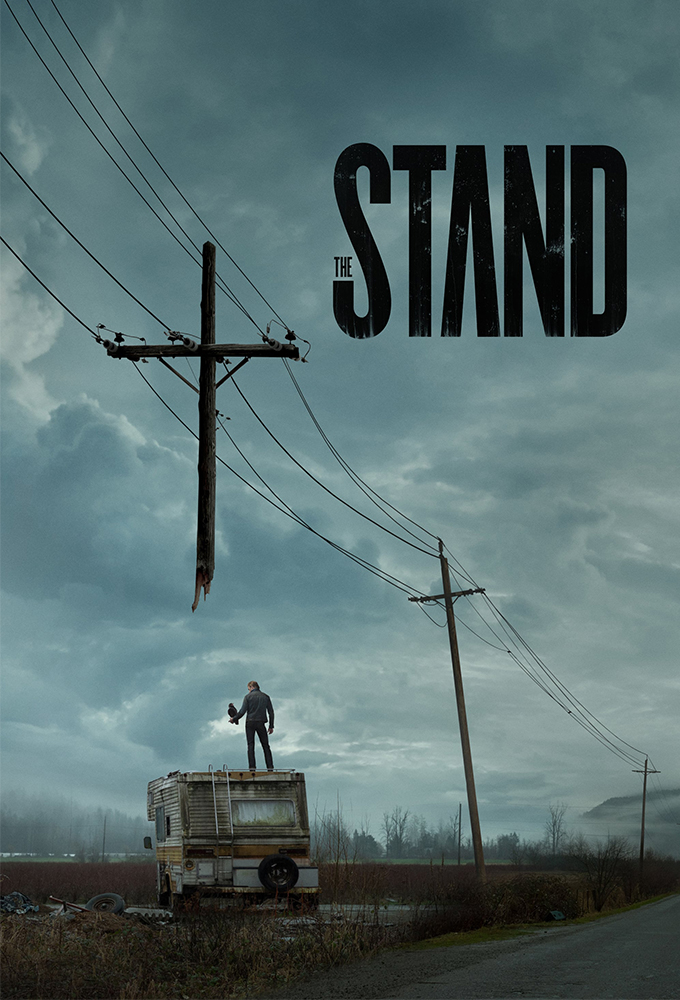
Earlier this year (or was it late last year, time blurs) me and Linn watched the new tv series version of Stephen King’s The Stand and we really liked it. It wasn’t the greatest, nor most interesting thing ever made for tv but it was a fun watch. After we finished it I read some reviews and saw that a lot of people, both regular viewers and professional critics, seemed to dislike it and I just couldn’t understand why they where so down on it.
Now that I’ve only got a few hours left of the audiobook of the novel I can sort of see where they are coming from, but I still don’t agree. Yes, if you’ve loved the book for decades then the show is going to leave you feeling it lacks so much. That’s kind of always the case. It’s an adaptation, not an exact word for word retelling with sound and moving images. On the other hand if you, like me, know about the book but haven’t gotten around to reading it the show is great ”fun” and might actually push you to read the book
Stop reading here if you don’t want spoilers.
Thus far in my reading of the book there are even some things that I think the tv show does better, primarily Randall Flagg himself. In the novel he is a sort of a demonic entity from the start whereas in the show he comes of as very human to begin with, almost getting you to like him, while still there being something wrong about him. Alexander Skarsgård is perfectly cast for the roll and his puppy-dog eyes makes it all the more effective when he does do scary things. It’s much more scary with a psychotic human then a demon.
Harold Lauder also comes to mind. The character in the book never gets as interested as he has potential to be and I think Owen Teague’s portrait of him really makes him human. I think there’s much more of an interesting internal conflict in him in the show as compared to the novel, and you end up both hating him, pitying him and also understanding him in the show. In the show you can see how it really was perfectly possible for him to drop his grudges and be ”Hawk” instead, remaking himself as a likable person in Boulder, but that he choses not to.
Worth noting also is the casting of James Marsden as Stu. While not ”better” than the book, it’s simply great casting. Marsden is really the perfect actor to play this almost archetypical character, the redneck with a heart of gold.
 Henrik Carlsson posted this
note
on
and tagged it with Reading The Stand TV shows
Henrik Carlsson posted this
note
on
and tagged it with Reading The Stand TV shows 
 ©
©
Replies and comments
V_
8 juli, 2021 15:38@MrHenko certainly an intriguing combination. But both of these books also have a lot in common, I think now. Both are slow starting behemoths and then take unexpected turns all along.
MrHenko
8 juli, 2021 16:02@V_ Yes indeed, they have a lot in common. Which makes the contrast in approach by their respective characters even more different.
Another thing they have in common is that I could make a compelling argument why both of them should be shortened to almost half their length, while I could make just as compelling an argument why both should be twice as long.
One more interesting difference between them is the authors approach to the science involved. If King were Stephenson, the parts about winding the coils at the power plant would include a lot of infodumps about the relation between the width of the coil, the length and gauge of the wire and the power they can pass. :)
V_
9 juli, 2021 16:37@MrHenko, I can follow your argument to shorten both books – whereas I would shorten the Stand more than Seveneves. The latter, I would actually like to have more of the last part. The new age felt quite rushed compared to the beginning.
And the part about the wire gauges and lengths is so true :-D
MrHenko
11 juli, 2021 00:52@V_ I agree, if I could add length to just one of them it would be Seveneves. I’d happily have read a ”Book 4: Another 1000 years later”.
And I just finished The Stand and realized that I’d missed an entire episode of the tv adaptation that I watched earlier this year but I liked how I thought the show ended, just after the big thing in Vegas. I don’t need to know about the rest, really, so the book could end there as well.
Still, I wouldn’t have minded it being another 200 pages longer and full of Stephenson-esque digressions.